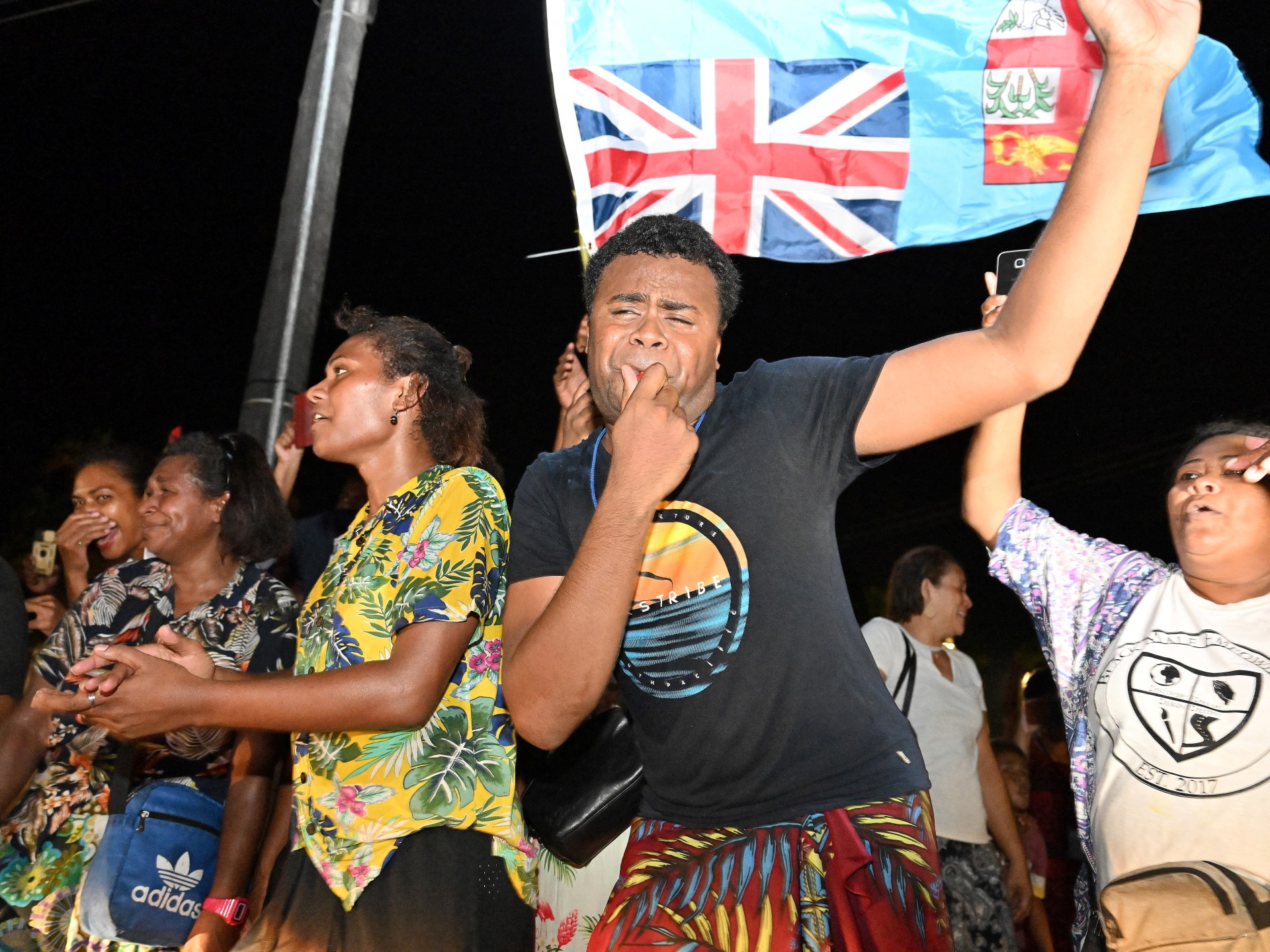Cheers for Fiji’s ‘new PM’ but parliament swearing-in delayed | Politics News
Fiji’s police force has called for calm and urged ‘all Fijians to respect the political process’ amid power transition.
Fiji is expecting a new leader to take office for the first time in 16 years after recent national elections resulted in three parties joining to form a coalition government to dislodge Fiji’s longtime premier Frank Bainimarama.
The Social Democratic Liberal Party, which holds three seats and became a powerbroker after the national election returned a hung parliament, announced on Tuesday that it had decided to form a coalition with Sitiveni Rabuka’s People’s Alliance and also the National Federation Party.
The formation of the coalition came after days of deliberations and rival presentations by incumbent premier Bainimarama’s Fiji First party and Rabuka’s People’s Alliance party aimed at breaking the deadlock.
Television broadcaster FBC said the new coalition government would hold 29 seats in parliament, and the party of Bainimarama – who seized power through a 2006 coup and then legitimised his government with outright election wins in 2014 and 2018 – would hold 26 seats.
Fijians took to the streets of the capital Suva in celebration on Tuesday night, cheering ”the new PM” and setting off fireworks.
But Fiji’s parliament delayed its first sitting on Wednesday where it had been expected that Rabuka would be sworn in as prime minister. The constitution requires that legislators elect the prime minister from the parliament floor if no single party has won more than 50 percent of seats required.
Fiji parliament’s secretariat confirmed to Reuters in an email that parliament did not sit because Fiji’s President Wiliame Katonivere has not yet issued a proclamation to hold the session.
In a statement on Wednesday, Fiji’s police force called for calm and urged “all Fijians to respect the political process”.
The Pacific island nation, with a population of 900,000, had a history of military coups before constitutional reform in 2013 removed a race-based voting system that favoured Indigenous Fijians over a large Indian ethnic group.
While New Zealand’s foreign minister congratulated Rabuka on emerging victorious – even before Bainimarama had officially conceded – New Zealand Prime Minister Jacinda Ardern offered a more measured response saying that Auckland would “wait” for the dust to settle on the election.
Congratulations to PA-NFP-SODELPA/ Sitiveni Rabuka on forming a coalition to lead the 🇫🇯 people. 🇳🇿 looks forward to working together to continue strengthening our warm relationship #duavata #mahitahi #kotahitanga
— Nanaia Mahuta (@NanaiaMahuta) December 20, 2022
“My understanding is there are a few extra things the (Fijian political) system will continue to go through,” Ardern told reporters.
“Let’s allow the process to run its course,” she said. “I have faith in Fiji’s ability to conduct the remaining stages of this process and stand ready to acknowledge their new leader.”
Bainimarama has not spoken in public since casting his vote in the election last Wednesday. Although he has previously promised to respect the election result, Fiji has been upended by four coups in the past 35 years, so Fijians are awaiting Bainimarama’s response nervously.
The 68-year-old has dominated Fiji’s politics for close to two decades and his unseating was greeted with celebrations on the streets of Suva. While not an outright autocrat, his government has frequently used the legal system to sideline opponents, silence critics and muzzle the media.
Rabuka himself led two coups in 1987 as head of the military and then became prime minister of Fiji before being removed at the polls in 1999.




